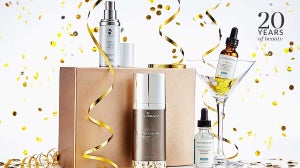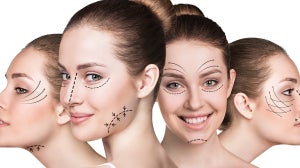
Kinetin is a type of plant compound known as a cytokinin. These compounds act as hormones in plants where they're involved in the growth and differentiation of plant cells. In plants, they serve as growth regulators. At the same time, they protect the DNA and cell membranes of plant cells against damage due to oxygen exposure by acting as antioxidants. Cytokinins like kinetin also seem to slow down the aging process in plants, keeping them healthy and vital longer.
Kinetin appears to have similar effects on human cells. In one study, kinetin was added to the culture medium of human fibroblasts. When this happened, the cells showed delayed signs of aging compared to cells that weren't exposed to it. When researchers removed kinetin from the cultures, the cells again showed typical signs of aging.
Another example that supports kinetin's anti-aging properties was a study carried out in fruit flies. Fruit flies have an average lifespan of about a month, but when researchers added kinetin to their diet, it more than doubled the lifespan of female fruit flies, although it reduced their ability to reproduce. A low dose was most effective in this study since high oral doses were toxic to fruit flies.
Does kinetin have skin anti-aging benefits?
Like other cells, skin cells are vulnerable to oxidative damage as a result of exposure to sunlight and environmental pollutants. Oxidative damage plays a major role in skin aging by disrupting cells and activating enzymes that break down collagen and elastin, two essential proteins that give skin its support and youthful firmness. Because of these properties, a pharmaceutical company added kinetin to a skin care product called Kinerase in 1994.
Kinerase is marketed as a plant-based alternative to topical retinoids like Retin-A. Retinoids have significant skin anti-aging benefits but also frequently cause skin irritation, redness and peeling. For this reason, some people can't tolerate them. Products like kinerase that contain kinetin are marketed as a "gentler" alternative to retinoids, offering similar anti-aging benefits without the same degree of skin irritation.
Does kinetin work?
Small studies support the skin anti-aging benefits of kinetin. A split-face study published in Dermatology Times in 2002 revealed that the side of the face exposed to kinetin for three months showed a decrease in the appearance of fine wrinkles, better skin texture and clarity and lightening of pigmented areas when compared to the opposite half of the face. Other small studies have shown similar benefits. Whether or not it's as effective as retinoids for treating aging skin is still unclear, although it appears to cause fewer side effects and is better tolerated. Unlike prescription-strength retinoids, Kinerase and other products that contain kinetin are available without a prescription.
Is kinetin safe?
Kinetin has an excellent safety profile. The Environmental Working Group's Skin Deep Cosmetics Database classifies it as a low-hazard cosmetic ingredient. It's not uncommon for kinetin users to experience mild redness, irritation and burning when they first start using it. This usually resolves over time. Most people can tolerate kinetin, even if they experience problems with topical retinoids or have sensitive skin. It typically doesn't cause allergies or clog pores.
All in all, kinetin offers many of the benefits of topical retinoids without the same degree of redness and skin irritation. It appears to soften and reduce fine lines and wrinkles, improve skin texture and clarity and lighten mottled skin pigment. Plus, it's available without a prescription. It's a good choice for people with sensitive skin and those who have tried retinoids and haven't been to tolerate them because of skin irritation, redness and peeling. Products that contain kinetin can cause some skin irritation initially, but it's usually less than what people experience with prescription-strength retinoids.
According to one study, kinetin may have more powerful skin anti-aging benefits when combined with niacinamide. Niacinamide is a type of B vitamin in some anti-aging skin care treatments like moisturizers and eye creams. In small studies, niacinamide improved the appearance of skin wrinkles and improve skin texture. The two anti-aging ingredients seem to work together to create more youthful looking skin.

Related Articles






